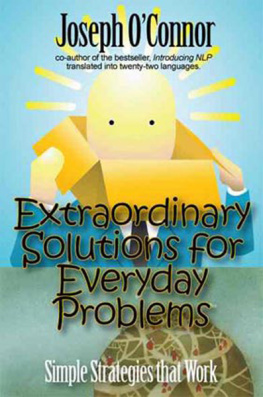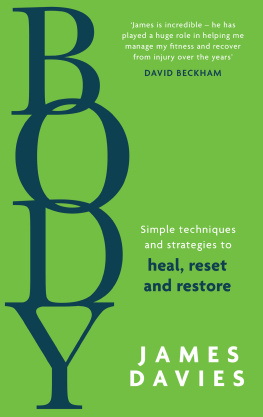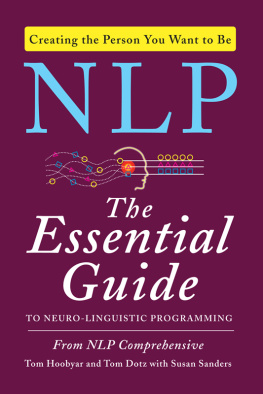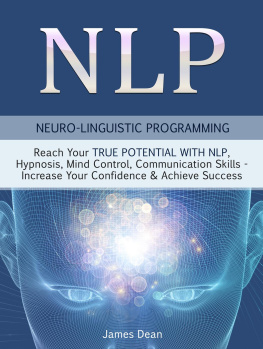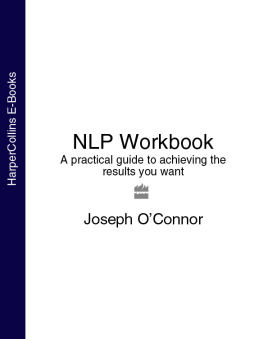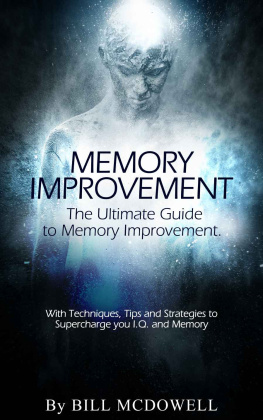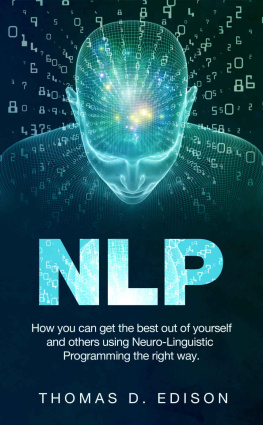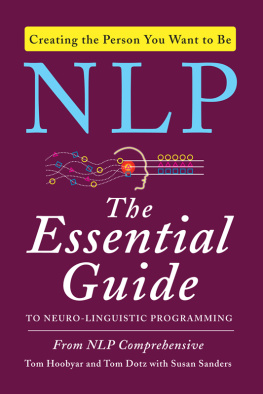Joseph OConnor was born in London, but now lives in Sao Paulo, Brazil. He is author of eighteen books on coaching NLP, systems thinking, and communication skills that have been translated into 29 languages. He works internationally as an executive coach, trainer and consultant.
He is also co-founder of the ICC (International Coaching Community), a world wide group of over two thousand trained coaches.
Copyright Joseph OConnor 2008.
All rights reserved. No part of this publication may be reproduced, stored in a retrieval system, or transmitted, in any form or by any means without the prior written permission of the publisher, nor be otherwise circulated in any form of binding or cover other than that in which it is published and without a similar condition being imposed on the subsequent purchaser.
This is a book for and about your everyday life. Its purpose is for you to make more of the exciting times, the joys, and the moments when everything turns out well. It is also for dealing with the frustrations, infuriating habits, and moments when things turn out wrong. They all come bundled together in our life and we cant have the first group without being open the second.
We want to be happy, although we dont always succeed. This book is about enjoying yourself; creating more good experiences and dealing as best we can with the bad ones. We may have little control over what happens to us but we can control how we respond to what happens to us. How do you enjoy yourself? You are probably thinking of doing something you enjoy. But there is another spin on the phrase. To enjoy yourself. To enjoy the feeling of being yourself, whatever you are doing. To enjoy yourself with your partner, with your children, with your friends, or on your own. I would like to dedicate this book to all the senses of enjoying yourself.
When my younger daughter was in her last year at primary school, the teacher set her class an essay at the beginning of the autumn term called, What I did on my summer holidays. My daughter wrote about her holiday by the sea. Some of her friends, she told me, had been to exotic places. One had spent two weeks at Disney World in Florida, another had been to India, others to the Spanish and French Riviera. The class teacher collected their work in and enjoyed reading their stories. All had captured her imagination, she told me afterwards, except one. Tony, an unusually quiet boy, had simply written, I went to America and found some pots in the desert. Then I got lost. Then my parents found me and I went home. After she had given back the work, she took Tony aside.
Tony, she said, I read your story, but I couldnt follow it very well. Can you tell me a bit more about what happened?
After some coaxing, Tony told her how he had gone to Arizona for his summer holiday and how he had been allowed to work with his father on an archeological dig in the desert. He loved the country, the climate, the colours the music and the food. He had learned about some of the Native American cultures, and one night had gone for a walk in the desert and lost his way. He did not realise at the time how much danger he was in. He was particularly proud of how he had stared down a sidewinder rattlesnake. He described the strange scales over its eyes. The teacher shivered, and was entranced.
Tony, why didnt you write this all down? she asked.
I wrote the main story, he said. All the rest is just details.
All the exciting and interesting parts of life are in the details. This book is about appreciating the details you experience.
When we go to school, we are never taught how to think. Of course, we all think, (or think we do), but how we do is never explored. I dont mean self-indulgent introspection, but being aware of and learning from our own experience. Two people may live to fifty. From the age of twenty, one may have lived thirty different years. The other may have lived the same year fifty times from the point of view of the experiences they have permitted themselves to have. We learn many facts and skills, but are rarely given any guidance about how to learn, that for example, the best way to learn history might be a little different to how best to learn mathematics. Logical thinking is encouraged. But the world is not logical. Its messy. Logical thinking is good for predicting how objects behave - they have no feelings. People are not usually logical because what we do and what we decide follows our feelings as well as our thinking. There are many different kinds of intelligence and logical thought is only one. Also because we never explore our thinking we tend to assume everyone thinks the same way we do. Sometimes they do. But usually they do not.
This book uses some of the insights of Neuro Linguistic Programming or NLP to explore our experience. NLP has a complex name but is based on a simple idea. Our thoughts and feelings are not random. There have a structure; your experience makes sense. You can understand it. NLP is about how we put together our internal world with all its angels and devils, its welcome and unwelcome guests. This is not about controlling your mind and emotions but appreciating them, not about denying your experience, or trying to force it into a series of shoulds but living out its richness. NLP arose originally in America at the beginning of the 1970s from the studies of John Grinder, a linguist and Richard Bandler, a student of psychology. They were fascinated by a problem that we have all pondered over at one time or another. What makes the difference between someone who is really good at something and someone who is average? Good communicators think differently, believe differently, value differently to their less able colleagues, and NLP set about defining those differences. NLP may have begun in America but now it is taught all over the world. Valuable insights are easily lost when they come disguised in complicated language, so I have been ruthless with any jargon that could obscure the practical uses of NLP. This book is based around NLP ideas, but there is more to it than just NLP. It is not meant to be an orthodox NLP text, even if such a thing were to exist. It is about taking everyday problems and seeking to understand them from the inside, so you may see your experience in a new light. In doing so, I have drawn on my personal experience for examples.
There is no shortage of advice on how to be happy. Happiness is a very marketable commodity. We talk about seeking happiness, the pursuit of happiness, as if it is trying to get away from us. The way we talk gives us clues about how we think. When we talk about searching for happiness it assumes that happiness is something out there hiding in the undergrowth, and probably well camouflaged. If you are looking for happiness, then you do not have it. When you find it, you can lose it again. If only If only I had that friend/partner/job/outfit/money Yet all the places you have been and the people you have been with have one thing in common you. All our feeling come from inside, usually as a response to what happens on the outside. Getting what you want will make us satisfied, but it may not make us happy.

